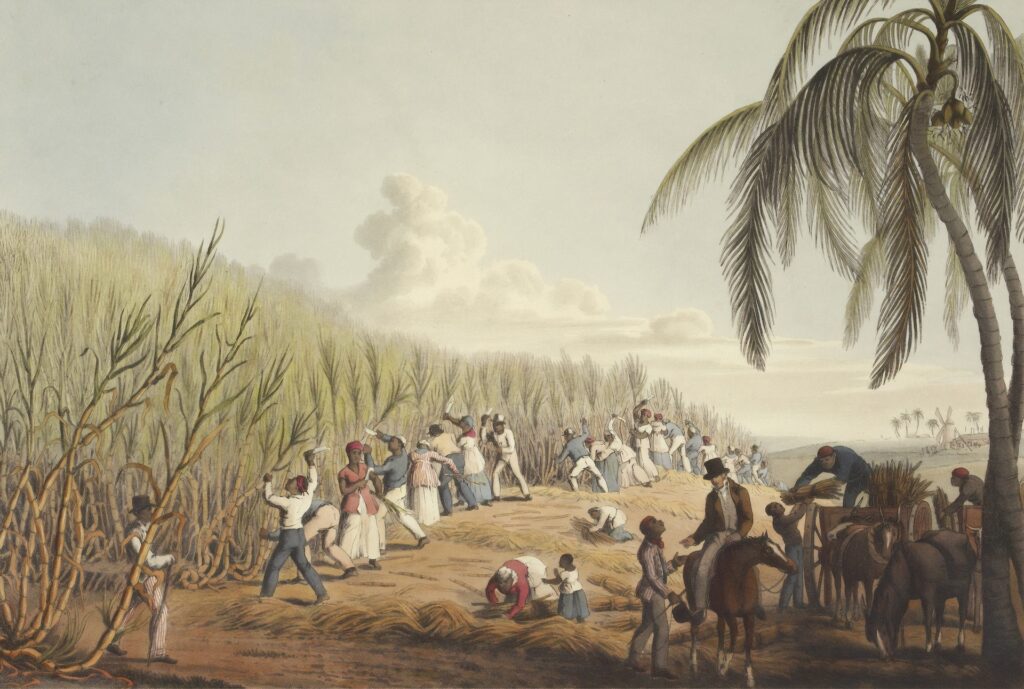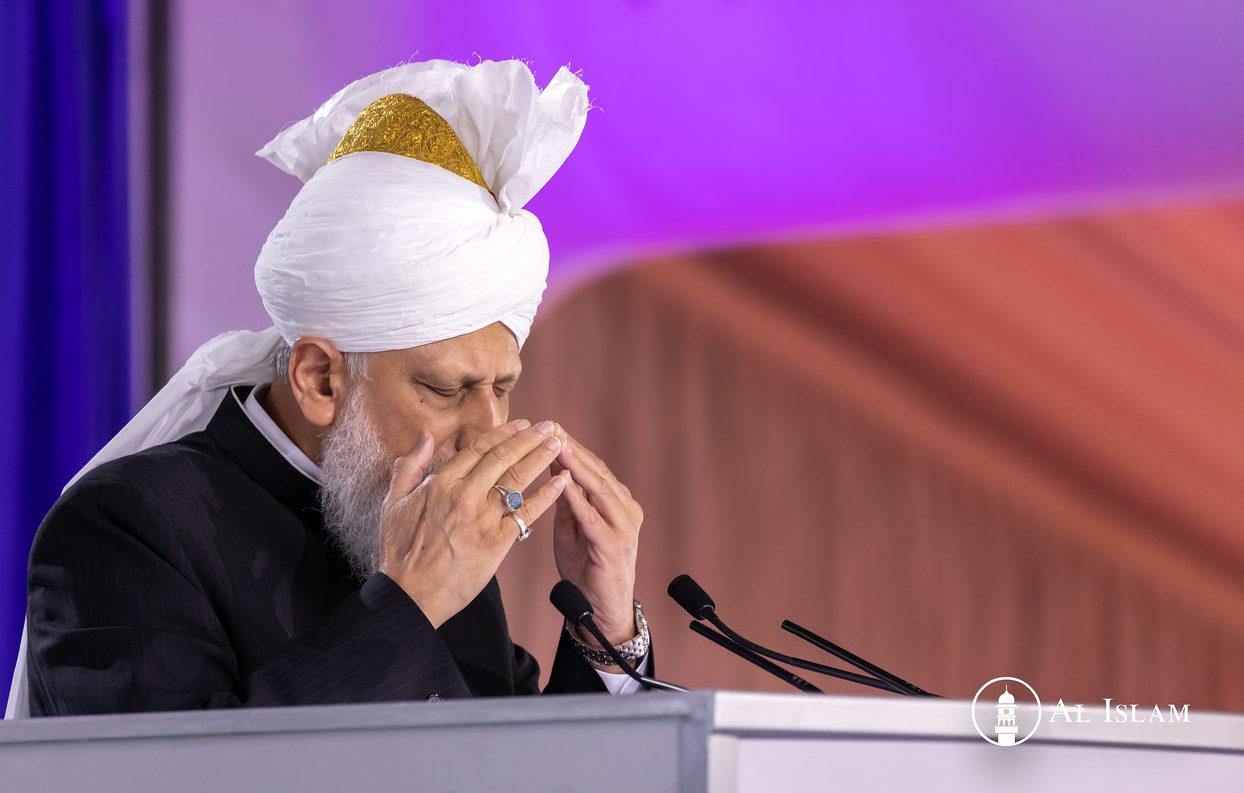Islam not only advocated the freeing of slaves but also paved the path for their progress and ensured they were seamlessly integrated into society.
SAYEDA NAYELA, CUTTACK
SEPTEMBER 23, 2023
The mother cried, “Oh, master, do not take me from my child”. Her plea was brimming with palpable agony, yet it fell short of evoking any empathy from him. Instead, it further stoked his fury as he responded with heavy strikes on her shoulder and snatched her son from her arms. The young boy watched his mother being dragged towards the place of sale and never saw her again in his entire life.
Charles Ball recounts that day in his autobiography Fifty Years in Chains:
“Young as I was, the horrors of that day sank deeply into my heart, and even at this time, though half a century has elapsed, the terrors of the scene return with painful vividness upon my memory”.[1]
Reading the memoir, which is a gripping account of slaves during the early 19th century, I wonder which suffering was greater: the physical cruelties the slaves had to endure or the untellable grief of being separated from their loved ones. After all, what did they do to deserve such vile treatment?
A pervasive institution
Slavery had been pervasive across diverse cultures throughout history. Slaves were considered mere chattels, were subjected to extremely cruel treatment by their owners, and had no authority over their own lives. Slave markets were also common in these cultures, where slaves were often sold at auctions, frequently resulting in the separation of spouses, children, and loved ones.
In pre-Islamic Arabia, slavery was deeply ingrained within the framework of society and was an integral part of its socio-economic structure. It was a common practice to enslave people by raiding weaker tribes and importing slaves from outside Arabia[2], which led to a significant increase in their population by the advent of Islam[3]. These slaves were treated harshly and formed the lowest class of the Arabian society.
A new era dawns
The advent of Islam marked the dawn of a new era where not only the oppression meted out to slaves was brought to an end, but their dignity was restored, and new pathways for their emancipation were opened.
From its inception, Islam sought to free slaves and integrate them into society, as can be seen from the early injunctions of the Quran that called to emancipate slaves[4]. However, rather than ending slavery at once, Islam adopted a gradual process that proved to be in the best interest of the slaves as well as society, the wisdom behind which will be discussed shortly.
The first step Islam took in abolishing this inhuman institution was the outright prohibition of the practice of enslavement. The Holy Prophetsa categorically forbade the act of enslaving free individuals, saying he would be at war against such people on the day of judgement.[5]
At the same time, the Holy Quran greatly encouraged the manumission of slaves, considering it highly meritorious in the estimation of Allah[6]. The Holy Prophetsa emphasised the freeing of slaves so much that he instructed his followers to seek assistance from others if they could not do it alone, declaring it an act that would lead directly to heaven[7]. These injunctions effectively instilled a strong desire in people to manumit their slaves. Notably, this element of volition was lacking in other worldly emancipation movements.
The Holy Quran also mandated the freeing of slaves as an expiation for various wrongdoings like accidental killing[8], breaking of oaths[9] and vowing abstinence from wives[10]. Similarly, the Holy Prophetsa obligated emancipation in cases such as when the master struck a slave[11], if the slave was a close relative[12], and during events like a solar eclipse[13], among others.
In addition, the Holy Quran also granted slaves the right to initiate the emancipation process by entering into a contract known as Mukatabat. In this arrangement, the master was obliged to set them free provisionally, allowing them to earn the amount fixed for release.[14]
Alongside manumission, Islam also took measures to uplift the self-dignity of the existing slaves, which was vital for their integration into society after attaining freedom. As a part of this effort, the Holy Prophetsa forbade addressing masters as ‘lords’ and instead instructed the use of ‘guardian’ or ‘master’. Similarly, he commanded referring to slaves as ‘my lad’ or ‘my lass’ while forbidding terms like ‘slave’ or ‘bond-woman’[15]. The Holy Prophetsa declared the equality of slaves with their masters and strictly forbade their ill-treatment, saying:
“Your slaves are your brothers. Hence, if an individual has a slave under his control, he should feed him what he eats himself and clothe him with what he wears himself. Do not burden your slaves with a task that they are overwhelmed. And if you do so, assist them in the task yourself.”[16]
In this way, Islam ameliorated the state of the existing slaves as well as created avenues that led to their emancipation.
Wisdom behind gradual emancipation
While no unbiased student of history can deny Islam’s strong stance against slavery, a question may still be posed as to why Islam took a gradual approach and did not end the practice at once, thus forgoing a chance of bringing a great revolution to its credit.
In this regard, it is imperative to note that the abrupt overturning of social structures causes chaos rather than justice. Various examples from human history show that introducing rapid and drastic societal changes proves detrimental in most cases.
After the American Civil War, slavery was formally abolished in the United States in 1865 with the ratification of the 13th Amendment. Subsequently, the 14th Amendment was also added to safeguard the rights of the emancipated slaves. Despite those constitutional guarantees, it took almost a century of agitation and litigation to bring about consistent enforcement of those rights. Many discriminatory laws, such as Jim Crow laws, existed until 1965 that denied various civil rights to African Americans. Worse yet, the legacy of such laws still persists against the black community even today.
Similarly, in France, the Bastille was stormed on 14 July 1789, and on 26 August, the Declaration of the Rights of Man and of the Citizen was introduced. This declaration proclaimed liberty, equality, and justice for all and challenged the existing feudal system. However, France came under the rule of Napoleon, who declared himself emperor in 1804. Though he brought order to France after a period of political violence, his regime grew increasingly authoritarian with time, curtailing some of the revolutionary freedoms the French had long fought for. It was only in the 19th century that France finally established a stable republican system. Thus, the movement that began in 1789 showed the dangers inherent in trying to restructure an entire society overnight.
On similar lines, one can imagine the unrest and chaos that could have arisen from an abrupt abolition of the slavery system in 5th century Arabia. Given that slaves were completely dependent upon their masters for their livelihood, suddenly abolishing this long and deep-rooted socio-economic institution would have given rise to many anti-social activities, the prime victims of which would have been the freed slaves themselves. Therefore, Islam took utmost care in this regard and gave the most progressive legislation for its time to ensure the systematic elimination of this institution.
A champion of human rights
The Islamic strategy of emancipation, as we saw above, stands out for its distinctive merits. Islam not only advocated the freeing of slaves but also sought to end the deep-rooted mentality that allowed the proliferation of this practice.
This is why the freed slaves of Islam were seamlessly integrated into society, unlike those liberated by secular movements who often had to struggle for years to secure their rights. In Islam, they were entrusted with important roles, often appointed over other members of society. For instance, Zaidra and later his son Usamara were appointed as chief commanders of the Muslim army in many expeditions[17], with many prominent companions serving under them.
Similarly, the dignity of the liberated slaves was so firmly established that they were often given preference over great leaders. An illustrative incident occurred during the period of Hazrat Umarra when Hazrat Bilalra, Hazrat Suhaibra and Hazrat Ammarra, who were former slaves, went to meet him. At that time, many Arab chieftains were also waiting to meet the Caliph. However, when Hazrat Umarra was notified, he first invited Hazrat Bilalra and others to come while the chieftains had to wait[18]. Similarly, it is also reported that Hazrat Umarra used to address Bilalra as ‘our chief’[19].
The profound social change brought about by Islam is further exemplified in yet another historic incident when Hazrat Umarra entered the city of Jerusalem walking while his servant rode a camel. Sir Zafarullah Khanra narrates this incident in his book Islam and Human Rights:
“Thus they arrived in Jerusalem, where the notables and the population were assembled to welcome the great Khalifah, and saw the Khalifah leading the solitary camel ridden by his ‘slave’!”[20]
These incidents clearly demonstrate that rather than granting nominal freedom, Islam established comprehensive rights for slaves. They showcase how Islam’s wise approach serves as a shining example of true societal transformation.
Sayeda Nayela holds a Bachelor’s degree in Chemistry from Ravenshaw University, Cuttack. She has a keen interest in International Relations and Philosophy.
END NOTES
[1] Fifty Years in Chains by Charles Ball, p. 11, H. Dayton Publisher, Indiana 1859
[2] Islam, Slavery, and Racism: The Use of Strategy in the Pursuit of Human Rights, Fadel Abdallah, The American Journal of Islamic Social Sciences v. 4, n. 1, 1987
[3] On the Provenance of Slaves in Mecca during the Time of the Prophet Muhammad, Hend Gilli-Elewy, International Journal of Middle East Studies, February 2017
[4] Holy Quran 90:13-14
[5] Sahih al-Bukhari, Kitab al-Itq (the Book on Manumission of Slaves)
[6] Holy Quran 2:178
[7] Mishkat al-Masabih, Kitab al-Itq (the Book on the Freeing of Slaves)
[8] Holy Quran 4:93
[9] Holy Quran 5:90
[10] Holy Quran 58:4
[11] Sahih Muslim, Kitab al-Aiman (the Book of Oaths)
[12] Sunan Ibn Maja, Kitab al-Itq (the Book on the Freeing of Slaves)
[13] Sahih al-Bukhari, Kitab al-Itq (the Book on Manumission of Slaves)
[14] Holy Quran 24:34
[15] Sahih al-Bukhari, Kitab al-Itq (the Book on Manumission of Slaves)
[16] Ibid
[17] Hazrat Zaidra was appointed as the commander of the Muslim troops in many expeditions, such as the Battle of Mu’tah and the expeditions to Al-Jumum, Al-Is, and Hisma, among others. Once, the Holy Prophetsa appointed Hazrat Usamara as the commander of the Muslim Army in a mission, while people doubted that decision. The Holy Prophetsa said they were criticising the leadership of Usamara as they criticised the leadership of his father Zaidra before that. The Prophetsa said that both of them were worthy of leadership and both of them were beloved to him. [Sahih al-Bukhari, Kitab al-Manaqib (the Book on Virtues and Merits of the Prophetsa and his companions)]
[18] Usd al-Ghaba fi Ma’rifat as-Sahabahh by Ibn al-Athir, v. 2, p. 586, under Suhail ibn Amr al-Qurashi
[19] Usd al-Ghaba fi Ma’rifat as-Sahabahh by Ibn al-Athir, v. 1, p. 418, , under Bilal ibn Rabah
[20] Islam & Human Rights by Sir Muhammad Zafrulla Khan p. 94












7 Comments
Fazal Haque Khan · September 23, 2023 at 1:27 pm
Nice Article…
ATIYATUL QADIR · September 23, 2023 at 2:28 pm
It is not only commendable but also appreciative
Zishan Ahemmad · September 24, 2023 at 2:08 pm
Very nicely and clearly described.
Zisan Ahemmad · September 24, 2023 at 2:07 pm
Very nice, keep going on it .
Abdul · September 30, 2023 at 8:06 am
I think it is time that violence against children should be discussed among Muslims. If Islam really is a peaceful religion, Muslim countries must show the world that they consequently ban child corporal punishment, like most of the secular states have done already (see Wikipedia page “Child corporal punishment laws”). The high level of violence against children in the MENA region (see UNICEF data and reports) seems to have a large impact on mental health of the population (Sultan Califi). And it is the SDG 16.2. of the Agenda 2030 .. https://sites.google.com/view/islamic-parenting .
Best regards, Abdul
Abdul Haq · October 17, 2023 at 4:27 pm
The title is misleading. Please elaborate when Islam abolished slavery.Islam did not successfully end slavery in the lifetime of the prophet, or under the first four caliphs, or under any of the caliphs who came after.
Abdullah · October 17, 2023 at 4:52 pm
There is not a single verse in the Quran that says that discourages slavery or says that it is a bad thing or mentions that it is an institution that is to be ultimately banned. On the other hand there are verses that allow for sexual relations with slave women even if they are married to someone else such as 4:25 “And forbidden to you are married women, except such as your right hands possess”.